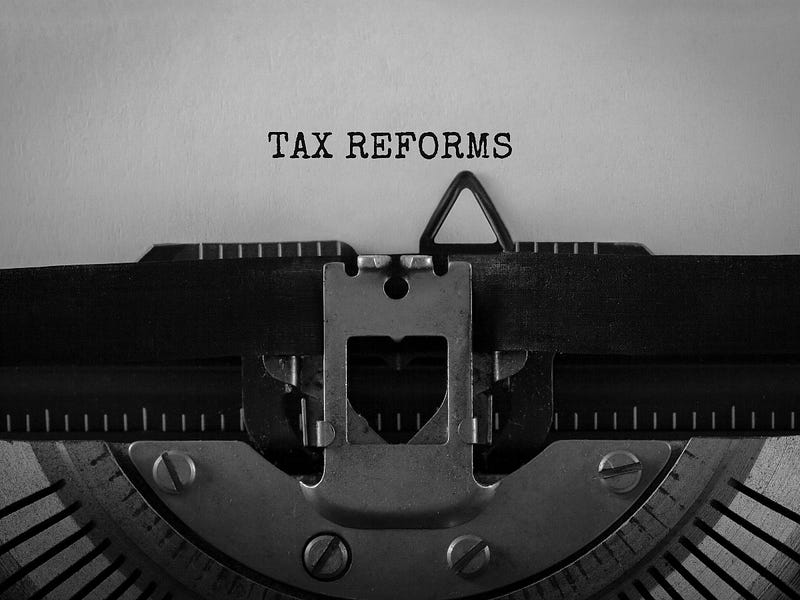Trump’s New Tax Plan Seeks to Avoid Hidden Costs of Amnesty
Research shows that one-time tax amnesties encourage more tax avoidance in the future. Will the new U.S. tax law change this pattern with multinationals?
By Steve Brooks

Fourteen years ago, American multinationals got a big, one-time tax break. At least, it was advertised as such. To entice them to bring home earnings they’d stashed overseas, companies were assessed a mere 5.25 percent, versus the regular bill — which is usually the difference between a corporate rate of 35 percent and whatever taxes had been paid to a foreign government. The result: Out of $800 billion kept abroad, $365 billion was repatriated.
This did not, however, change their tax payment behavior. By 2017, the same multinationals had hoarded even more offshore: an estimated $2.8 trillion. In December, they got a second break in the form of the Tax Cuts and Jobs Act, which taxes offshore funds at a top rate of 15.5 percent and gives them eight years to pay it.
To Brady Williams, an assistant accounting professor at Texas McCombs, it’s no surprise that tax forgiveness breeds tax avoidance. In a new study of state amnesties — limited-time offers to voluntarily pay back business taxes with low or no penalties — he finds that once forgiven, firms got even more aggressive about slashing their tax bills. Over 32 years, this behavior cost states $38 billion in lower collections.
“When we try to quantify what they give up for what they get in an amnesty,” Williams says, “it appears to be a very myopic or short-term decision by policymakers.”
At Stake: Enforcement Credibility
States can have several reasons to waive tax penalties, he says. Sometimes they need quick cash to balance budgets. Or they hope to bring new taxpayers out of the shadows.
“If a Texas company is just starting to do business in Montana, at what point do they need to start filing a tax return in Montana? Companies don’t always know the answer to that question or even think about it.” Williams says. “In contemplating amnesties, states often figure, there are a lot of companies that should be filing returns in our state, but aren’t. Let’s offer amnesty as way to get these companies in our jurisdictions on our tax rolls in the future.”
Such grace periods boost short-term revenues, but Williams wondered about the long-term side effects. How did they influence businesses that had always been compliant taxpayers? When they saw competitors escaping punishment for avoiding taxes, would they have second thoughts?
“You’re setting a new precedent in the taxpayer’s mind of what type of enforcer you are. The very fact of having an amnesty reveals there’s a lot of stuff going on that’s been missed,” he says. “A lot of your peers were able to be non-compliant for a long time and are getting just a slight slap on the wrist.”
If a business wants to start cutting its tax bills, it has plenty of options, from claiming riskier deductions to shifting income to lower-tax states. Whatever the strategies, he reasoned, they should show up as a lower tax rate in a firm’s financial reports.
To test his suspicion, he and two colleagues — Terry Shevlin of the University of California, Irvine, and Jacob Thornock of the University of Washington — looked at 39 states that had offered grace periods for unpaid taxes between 1980 and 2012. Thirty had done it at least twice and several up to five times.
The researchers then examined 56,497 annual observations from public companies headquartered in those states, comparing state effective tax rates they paid before and after amnesties.
Forgive Now, Collect Less Later
The results confirmed Williams’ misgivings. After a first amnesty, the average firm’s tax rate dropped 13 percent from the period before. The effect was even greater for multiple mercies. Tax rates fell 16 percent in states that offered two amnesties and 23 percent in those that offered three or more.
Smaller firms were the most likely to ramp up their tax avoidance after an amnesty. That might be because states keep closer tabs on larger ones, he says. “If you’re big enough, states audit you every year. With smaller firms, there’s more of a random selection process, so there’s a little more room to be aggressive. There’s also more opportunity to take an aggressive tax position and wait for the statute of limitations to expire without it being audited.”
Governments can discourage that mentality, prior research suggests, with a carrot-and-stick approach: couple forgiveness with stricter policing and higher penalties going forward. In one study, individuals chose how much income to report to the IRS, under a variety of scenarios. They reported the most when amnesty was bundled with increased enforcement. “The amnesty is used to highlight and advertise the increase in enforcement,” Williams says.

The line of research doesn’t suggest that states should never try tax forgiveness, but that there are diminishing returns to doing it more than once.
“If it’s billed as a one-time event, it needs to be kept as a one-time event,” he says. “There’s a loss of credibility on the part of the tax authority as soon as it’s repeated.”
He recalls what a state revenue official once told him, after an amnesty. “They were having companies call them and ask when they were doing the next one,” Williams says.
Which is what happened to Uncle Sam, he adds, after the 2004 holiday on foreign earnings. Companies kept their money abroad, while they lobbied to get a repeat. This latest GOP-driven tax bill rewards them with a tax cut more lasting than the first. “In a sense, it’s like a permanent holiday,” Williams says. “Relative to the 35 percent they would have had to pay when the income was earned, they will pay a lot less.”
But highlighting the temptations of clemency, he adds that Uncle Sam will reap more revenue in the short term. The federal government will make $324 billion over 10 years, according to the Joint Committee on Taxation, although those gains will peter out by 2027.
“You can argue that many firms would have kept their foreign earnings offshore indefinitely,” Williams says. “Getting something is better than getting nothing.”
“Multinational Tax Incentives and Offshored U.S. Jobs” is published in the Accounting Review.


